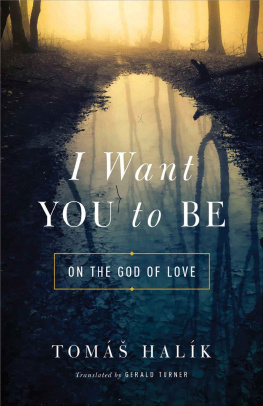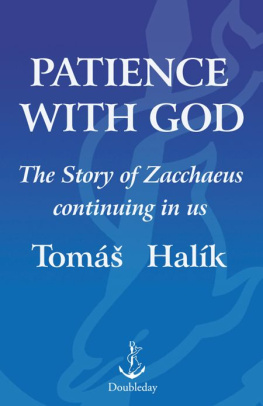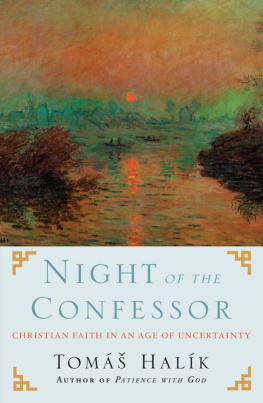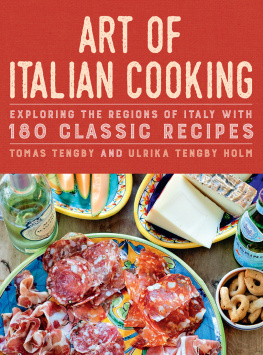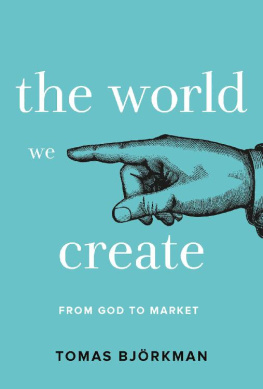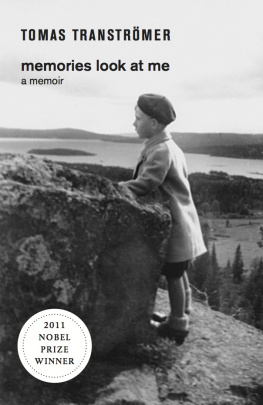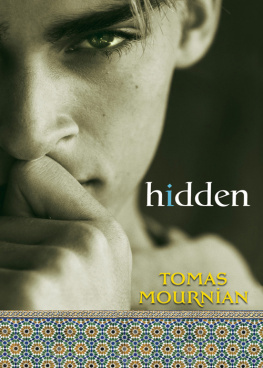Tomáš Halík - I Want You to Be: On the God of Love
Here you can read online Tomáš Halík - I Want You to Be: On the God of Love full text of the book (entire story) in english for free. Download pdf and epub, get meaning, cover and reviews about this ebook. year: 2016, publisher: University of Notre Dame Press, genre: Religion. Description of the work, (preface) as well as reviews are available. Best literature library LitArk.com created for fans of good reading and offers a wide selection of genres:
Romance novel
Science fiction
Adventure
Detective
Science
History
Home and family
Prose
Art
Politics
Computer
Non-fiction
Religion
Business
Children
Humor
Choose a favorite category and find really read worthwhile books. Enjoy immersion in the world of imagination, feel the emotions of the characters or learn something new for yourself, make an fascinating discovery.
I Want You to Be: On the God of Love: summary, description and annotation
We offer to read an annotation, description, summary or preface (depends on what the author of the book "I Want You to Be: On the God of Love" wrote himself). If you haven't found the necessary information about the book — write in the comments, we will try to find it.
I Want You to Be: On the God of Love — read online for free the complete book (whole text) full work
Below is the text of the book, divided by pages. System saving the place of the last page read, allows you to conveniently read the book "I Want You to Be: On the God of Love" online for free, without having to search again every time where you left off. Put a bookmark, and you can go to the page where you finished reading at any time.
Font size:
Interval:
Bookmark:
I WANT YOU TO BE
I Want You to Be
ON THE GOD OF LOVE
TOM HALK
Translated by GERALD TURNER
University of Notre Dame Press
Notre Dame, Indiana
Published by the University of Notre Dame Press
Notre Dame, Indiana 46556
www.undpress.nd.edu
Copyright 2016 by Tom Halk
All Rights Reserved
Manufactured in the United States of America
Library of Congress Cataloging-in-Publication Data
Names: Halk, Tom, author.
Title: I want you to be : on the God of love / Tom Halk ; translated by Gerald Turner.
Other titles: Chci, abys byl. English
Description: Notre Dame : University of Notre Dame Press, 2016. | Includes bibliographical references. | Description based on print version record and CIP data provided by publisher; resource not viewed.
Identifiers: LCCN 2016020342 (print) | LCCN 2016019554 (ebook) | ISBN 9780268100742 (pdf) | ISBN 9780268100759 (epub) | ISBN 9780268100728 (hardcover : alk. paper)
Subjects: LCSH: LoveReligious aspectsChristianity. | God (Christianity)Love. | Christianity and culture.
Classification: LCC BV4639 (print) | LCC BV4639 .H22513 2016 (ebook) | DDC 241/.4dc23
LC record available at https://lccn.loc.gov/2016020342
This paper meets the requirements of ANSI/NISO Z39.48-1992
(Permanence of Paper).
ISBN 9780268100759
This e-Book was converted from the original source file by a third-party vendor. Readers who notice any formatting, textual, or readability issues are encouraged to contact the publisher at .
As one of his many pupils,
I dedicate this book to the memory of
Dr. Josef Zvina (191390),
Czech theologian and human rights advocate,
imprisoned by the Nazis and Communists,
author of The Theology of Agape,
in gratitude to this teacher of faith,
love, and civic courage.
Amo: volo, ut sis (I love you: I want you to be).
attributed to St. Augustine
There is a certain relationship between love and the Divine. Love is indeed ecstasy, not in the sense of a moment of intoxication, but rather as a journey, an ongoing exodus out of the closed inward-looking self towards its liberation through self-giving. But this process is always open-ended; love is never finished and complete; throughout life, it changes and matures, and thus remains faithful to itself.
Benedict XVI, Deus caritas est
And now faith, hope, and love abide, these three; and the greatest of these is love.
1 Cor. 13:13
Contents


I have often asked myself, but found no answer, / where gentleness and goodness come from / I still dont know today, and now must go, wrote Gottfried Benn.1 The authenticity and sadness of this verse is what captivates. Something profounder and more universal shines through the poets humble sinceritya testimony about the times we live in. The constant flow into the sea of human knowledge simultaneously conceals and reveals that notknowingness, the chasm of helplessness when we are confronted by the question of the ultimate where from that defies all attempts to name it.
In the first half of the twentieth century, against the background of all the horrors of war and genocide, the age-old question, Whence cometh evil?, was posed afresh with new urgency. It is quite possible that nowadays we have become so accustomed to evil, violence, and cynicism that we ask ourselves with surprise another question: Where do tenderness and goodness come from? What are they doing here in our cruel world? Do tenderness and goodnesslike evil and violenceemerge from somewhere in the conditions of our world (do evil and good depend chiefly on how we organize society?) or from some still unexplored corners of our unconscious or complex processes in our brains? There are plenty of scientific studies about the psychoneurobiological processes that accompany all our emotions, and about the centers in the brain that are activated when we receive or show tenderness, and when we do good or people are good to us. I do not doubt that everything we feel and think first passes through countless portals of our natural world and is affected and influenced by our organism and our environment, and by the culture we are born into, including the language in which we think. After all, our bodies and our minds, our brains, and everything that happens in them are part of the world or nature, that intricate corridor through which the river of life flows. But where is the truly ultimate source?
Can we simply reject the ancient intuition that goodness and tenderness, the light and warmth of life that we almost hesitate by now to give the overworked name of love, enter our worldand hence our minds and behaviornot simply as a mere product of ourselves and our world, but as a gift, as a radically new quality, which rightly fills us again and again with amazement and gratitude? Isnt the world itself a gift? Arent we a gift to ourselves? And isnt this gift renewed over and over again and revived from that therefrom from which love springs? But if we go seeking that source beyond our worldoutsidewill we not miss the opportunity to encounter it where we overlook it because it is so close, namely, inside?
Where do tenderness and kindness have their source? Do I know, perhaps? I have to admit that I dont. All the answers that occur to me feel like a heavy curtain covering the open window of this question. There are some questions that are too good to spoil with answers, that should remain an open window. Such openness need not lead to resignation but to contemplation.
Those who are aware that the author is a theologian are by now possibly waiting impatiently for me to say at last that the answer to the question about the ultimate is God, of course. But the conviction has gradually matured within me that God approaches us more as a question than an answer. Maybe the one whom we mean by the word God is more present to us when we hesitate to say the word too hastily. Maybe he feels better with us in the open space of the question than in the constrictingly narrow gully of our answers, our definitive statements, our definitions and our notions. Let us treat his Holy Name with the greatest restraint and care.
Maybe the moments in history when polite or indifferent silence about God reigns in the world of academe are a precious opportunity for the theologian to make amends for the pious garrulousness of the previous epoch and return to what the holy teacher of the faith Thomas Aquinas emphasized at the beginning of his philosophical and theological investigations: God is not evident. Of ourselves we do not know what or who God is. Let us not fear vertigo when looking into the depths of the Unknown. Let us not fear the humble admission, I dont know. After all, this is not the end but always a new beginning on the endless journey.
Besides, for faith (and also hope and love), for all these three forms of patience with God, with his hiddenness,2 we dont know is not an insurmountable barrier.

For many people around me the biblical statements about love (God is love; love the Lord your God with all your heart; God so loved the world; love your enemies) sound like phrases in an unfamiliar, incomprehensible, or long-forgotten language. Those people often consider themselves unbelievers (or at most people who believe differently than those who subscribe to Christianity or Judaism). In the world of the Bible, theology, and Christian faith, they are strangers. So it is not surprising that religious statements of that kind sound like music from distant worlds, or like the ruins of cities once inhabited by the generations of their ancestors.
Next pageFont size:
Interval:
Bookmark:
Similar books «I Want You to Be: On the God of Love»
Look at similar books to I Want You to Be: On the God of Love. We have selected literature similar in name and meaning in the hope of providing readers with more options to find new, interesting, not yet read works.
Discussion, reviews of the book I Want You to Be: On the God of Love and just readers' own opinions. Leave your comments, write what you think about the work, its meaning or the main characters. Specify what exactly you liked and what you didn't like, and why you think so.

